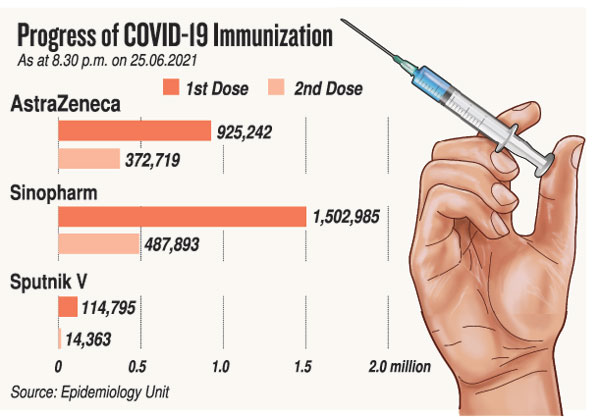News
Vaccination strategy – stick to what works by giving the jab to the highest-risk group
The vaccination programme was once again the ‘centre’ of attention with many urging that it should be laid out clearly to cover those at highest risk – those over 60 years of age whose deaths are over 75% of the toll and those with diabetes and hypertension even under 60 years who are also among those dying of COVID-19.
Some pointed out that thankfully, Sri Lanka is just getting back on the right track with regard to vaccination – giving the jab to the most vulnerable and high-risk groups who are the elderly and those with co-morbidities. This is the right decision because it prevents severe disease and death.
They emphasized that in Sri Lanka’s current situation with a limited vaccine supply, vaccines cannot be used to stop disease transmission. Such thinking is unscientific for a number of reasons.

- It takes about 6 days to issue the test results, identifying a positive person. This means that the infection has been with that person for a long time and those who were exposed to him/her would have had that exposure also some time before.
- The incubation period of the virus is generally quite short, about 5 days.
- Even if Sri Lanka has the best vaccines, for the vaccine to kick-in after the jab and show some protection, takes about 14 days.
- With Sinopharm, such protection only kicks in after the second dose – more than 5 weeks after the first dose. So there is no hope of using vaccination to stop transmission.
An expert gave the example of Israel which has controlled the pandemic by carrying out vaccination of vulnerable groups first, followed progressively by moving down the age-slabs until the majority of the population was vaccinated. This strategy works because it starts to produce results early by reducing deaths and then gradually gets to a point of high vaccination coverage. This is when population or “herd” immunity gradually contributes to reducing transmission as well.
Pointing out that Israel is an example of success where the strategy has been proven to work, the expert added that it is the same strategy used by the United States of America and the United Kingdom. It is important for Sri Lanka not to experiment with untested approaches.

